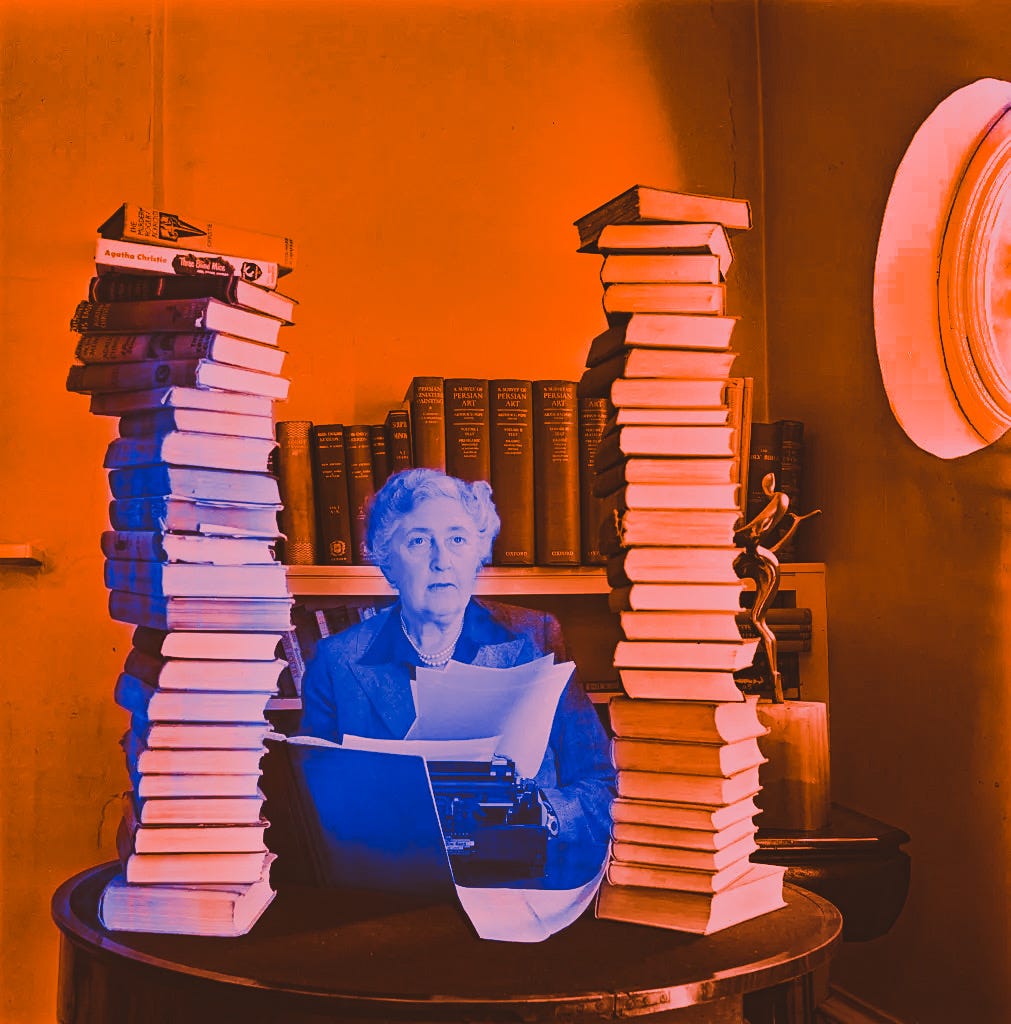Sensitivity Language Police Strike Again
Harper Collins purges "offensive language" from Agatha Christie novels
There was an outcry recently over hundreds of changes made to Roald Dahl’s books and Ian Fleming’s James Bond novels, all intended to make them “inclusive and accessible” through today’s progressive lens on issues such as gender, race, misogyny, weight, mental health, and violence. Author Salmon Rushdie condemned the publishers then for their “absurd censorship.” In a Substack I wrote last month about the Dahl alterations, “’Ugly’ and ‘Fat’ No Longer,” I concluded, “Words matter. The problem is that the Dahl sensitivity censorship sets a template for other hugely successful author franchises. Readers should know that the words they read are no longer the words the author wrote.”
The template of woke censorship has now been used by Harper Collins, one of the “Big Five” English-language publishers,1 to make wholesale changes in Agatha Christie’s classic detective novels. The publisher hired “sensitivity readers” to highlight what they considered offensive in the 12 novels and 20 short stories in the Miss Marple series and some of the 33 Hercule Poirot novels. The result is hundreds of alterations, often just changing a few words, but all too frequently the deletion of entire paragraphs.
These are not the first changes to Christie’s works. Use of the N-word was removed years ago from earlier editions. Her hit novel, The Little Indians, which was also a successful play on Broadway with that name, was changed in 1977 to And Then There Were None. “Little Indians” was judged to be a “racist term.”
The new changes, however, are a much broader effort to recast Christie’s writings so they satisfy modern sensitives. That results in characters mostly stripped of any racial or religious identity. A “black servant” is no longer black. A “gypsy type” woman is now just “a young woman.” A judge loses the “Indian” in a scene about his temper, Poirot no longer says that another character is “a Jew, of course.” Natives are replaced everywhere by locals. Most references to Nubians — an ethnic group indigenous to northern Sudan and southern Egypt — are deleted from the 1937 Death on the Nile. “Nubian boatman,” for instance, is now just “the boatman.”
All references to Oriental are gone (Harper Collins is reportedly even considering changing the title of one of Christie’s best-known novels, Murder on the Orient Express, to the one used in 1934 on the U.S. edition, Murder in the Calais Coach).
Sensitivity readers evidently are triggered by inexplicable passages. The publisher does not explain why it made any of the changes. In the 1964 novel, A Caribbean Mystery, a character does not see a black woman in the bushes as he returns to his hotel room. That passage is deleted in the cleansed edition. In the same book, Christie describes a character with “a torso of black marble such as a sculptor would have enjoyed.” That is also removed. At another point in the original, Miss Marple admires a West Indian hotel worker’s “lovely white teeth.” That is gone too. Even other references to “beautiful teeth” are deleted. What could be the preposterous reason to scrub references to “beautiful teeth?” Does it trigger readers with poor dental hygiene?
Insulting language is no longer allowed. In Death on the Nile, when a group of children annoy and harass a character, she muses, “they come back and stare, and stare, and their eyes are simply disgusting, and so are their noses, and I don’t believe I really like children.” In the cleansed edition it is simply, “They come back and stare, and stare. And I don’t believe I really like children.”
Harper Collins does not deserve all the blame. As with the previous cases of Roald Dahl’s books and Ian Flemings Bond series, descendants of the authors own the rights. They must sign off on the wholesale changes that supposedly make the books “more inclusive and accessible for modern readers.”
Shame on both the publishers and the family rights holders.
Good literature should not be judged through a modern-day prism that goes out of its way to correct for perceived slights. By reading the uncensored originals, readers can react to books as written. The most talented authors provide an essential lens into the era about which they write. In censoring and changing those books, publishers are invariably diluting the power of great storytelling.
Christie is only the latest author, but she will certainly not be the last, to have her books scrubbed of all language that might potentially offend today’s readers.
Dahl. Fleming. Christie. Who’s next?
Personally, I can’t wait for the public ruckus after sensitivity readers comb through the Old Testament.
The other four are Simon & Schuster, Penguin Random House, Hachette, and Macmillan.




Good piece, Gerald.
A few years back, the Bible was republished in Iceland in a new translation, supposedly in an attempt at creating something they called "the language of both genders". Besides flattening the language the main change was to throw out "brethern" everywhere. This was before they invented the other 120 or so genders; I assume they're preparing a new "gender neutral" one now, perhaps featuring the "parent of God".